-
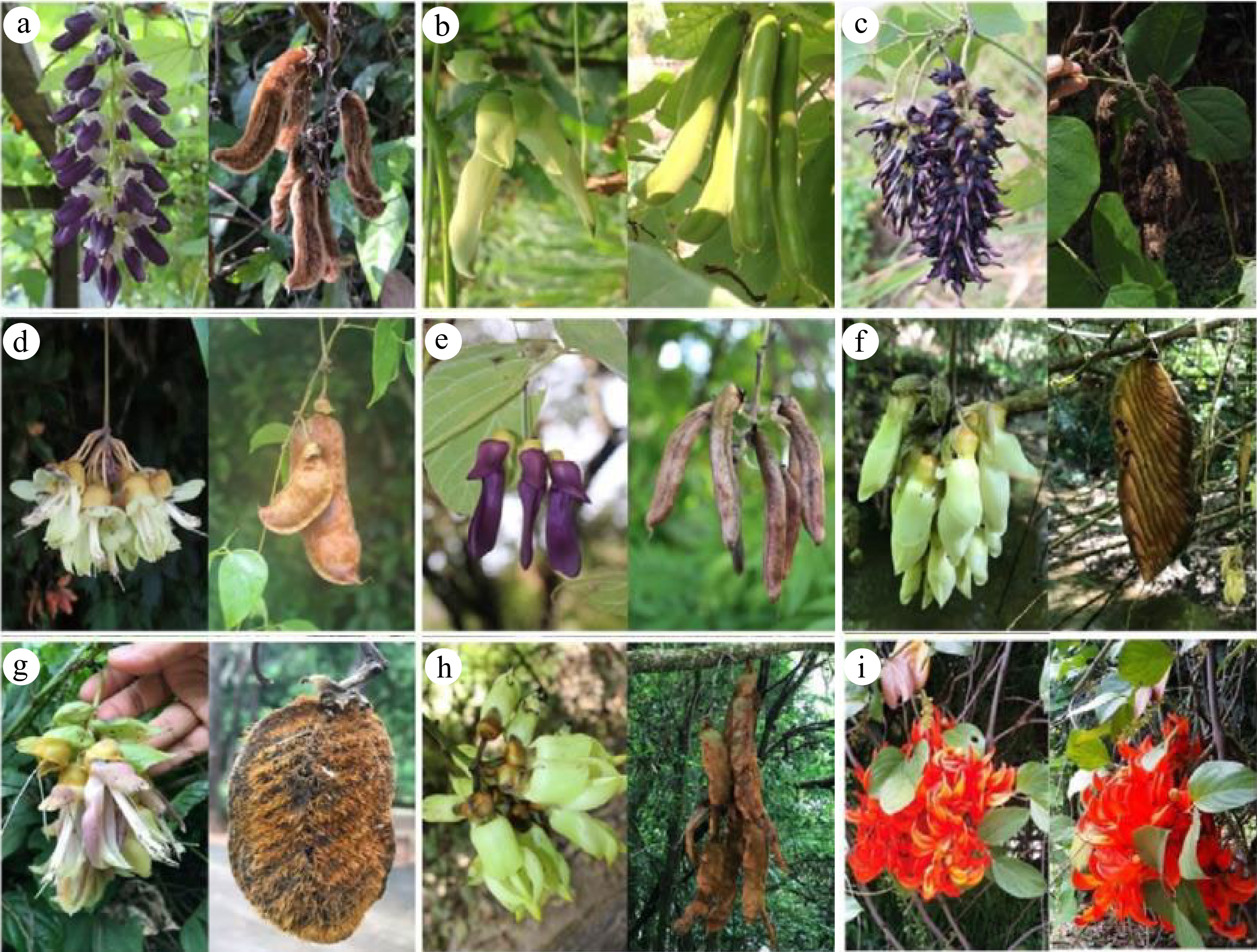
Figure 1.
Variations of Inflorescences and fruits in Mucuna species. (a) M. pruriens var. pruriens (L.) DC.; (b) M. pruriens var. utilis (Wall. ex Wight) Baker ex Burck; (c) M. bracteata DC. ex Kurz; (d) M. gigantea (Willd.) DC.; (e) M. gracilipes Craib; (f) M. hainanensis Hayata; (g) M. revoluta Wilmot-Dear; (h) M. thailandica Niyomdham & Wilmot-Dear; (i) M. warburgii Lauterb. & K. Schum. Source: Authors' compilation based on information from Mucuna species[9]
-
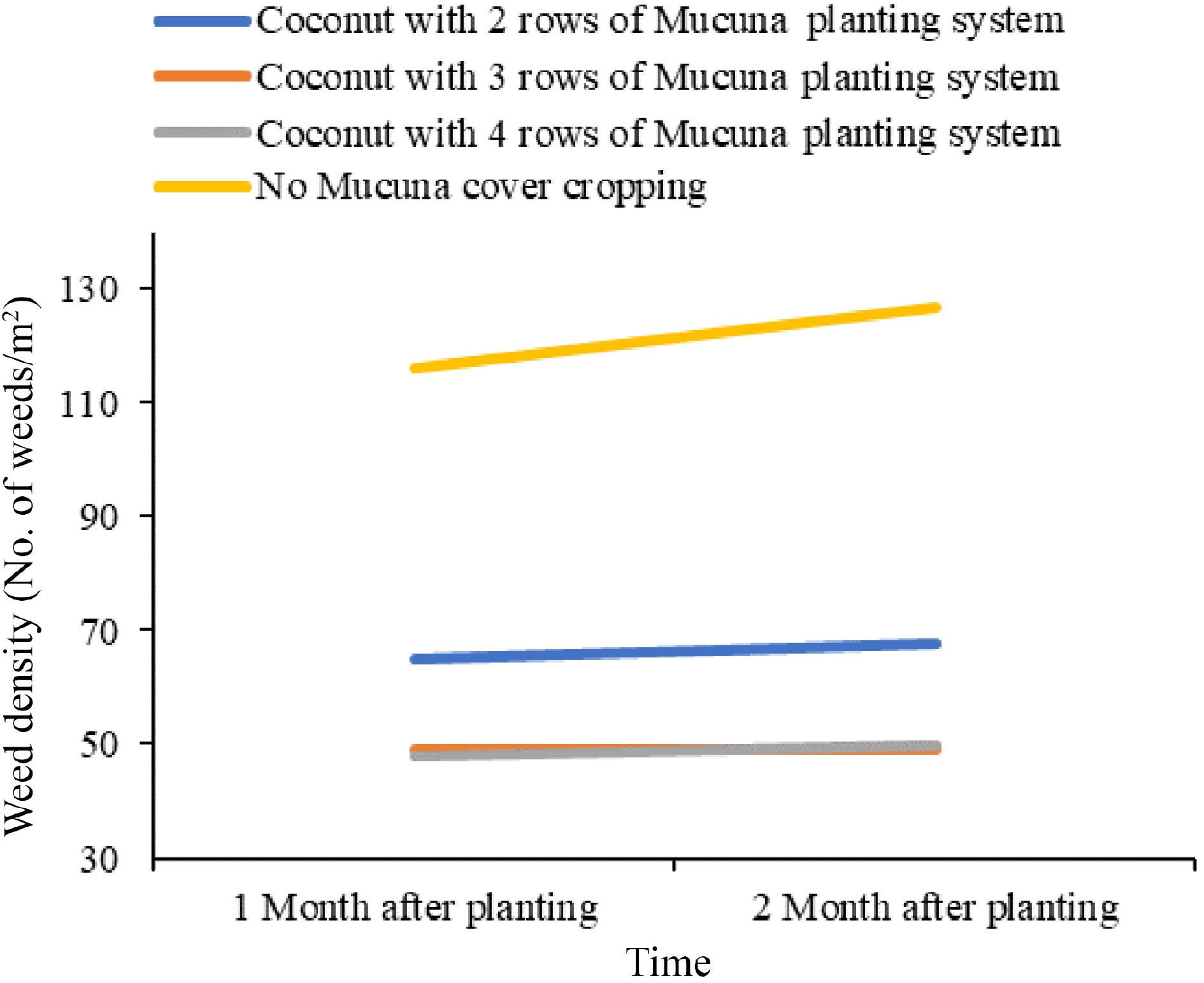
Figure 2.
Comparison of weed growth in different Mucuna planting systems. Source: Authors' compilation based on information from potential use of Mucuna bracteate as a cover crop[22].
-
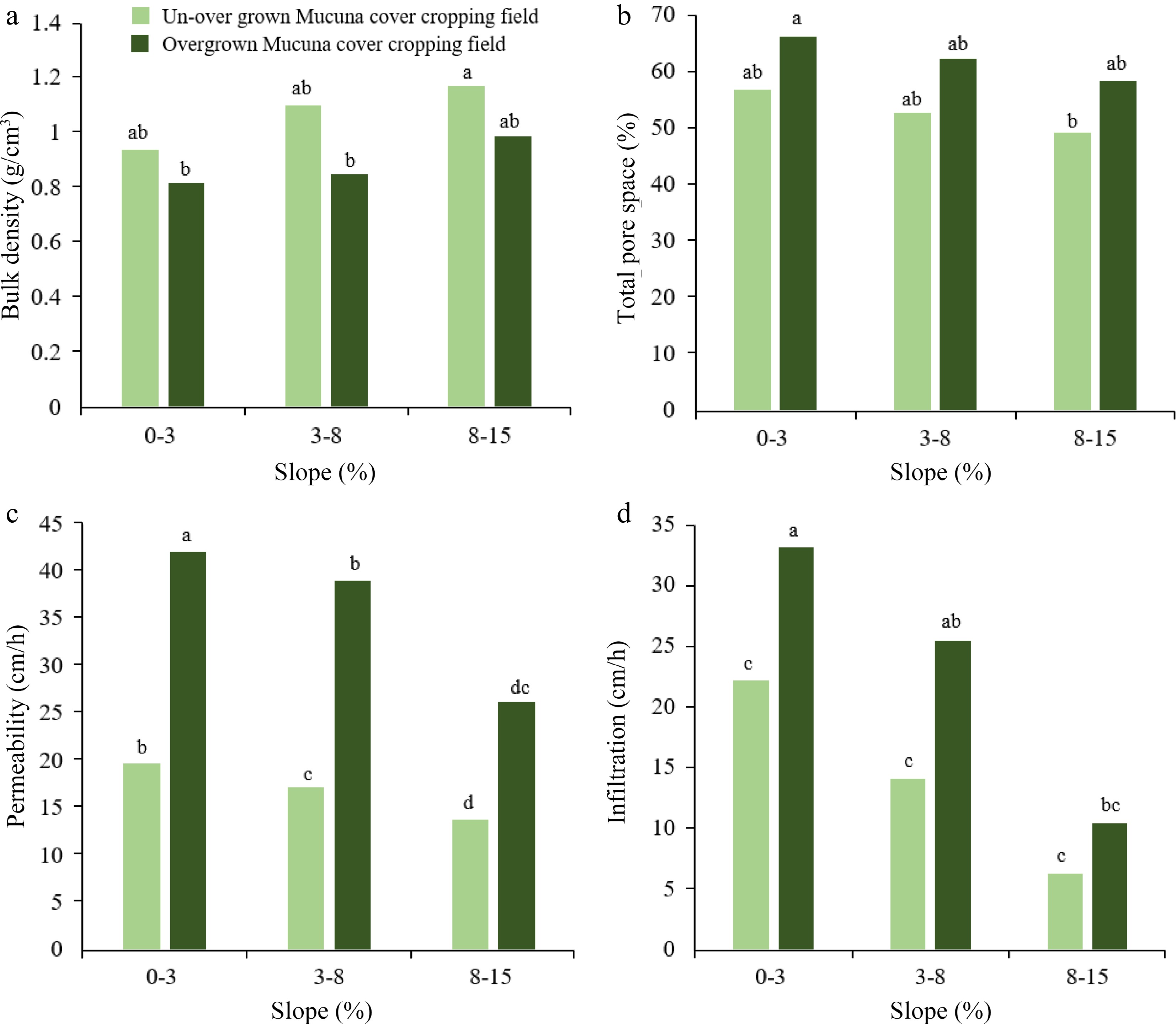
Figure 3.
Variation of soil physical properties in two Mucuna cover crop management systems in different topography levels. (a) changes in bulk density with land slope; (b) changes in total pore space with land slope; (c) changes in permeability with land slope; (d) changes in infiltration with land slope. Source: Authors' compilation based on information from effect of Mucuna bracteata on soil physical properties, runoff and erosion[34]. Note: Letters followed by the same lowercase letter in the same parameter show not significantly difference on a significant level at 5%.
-
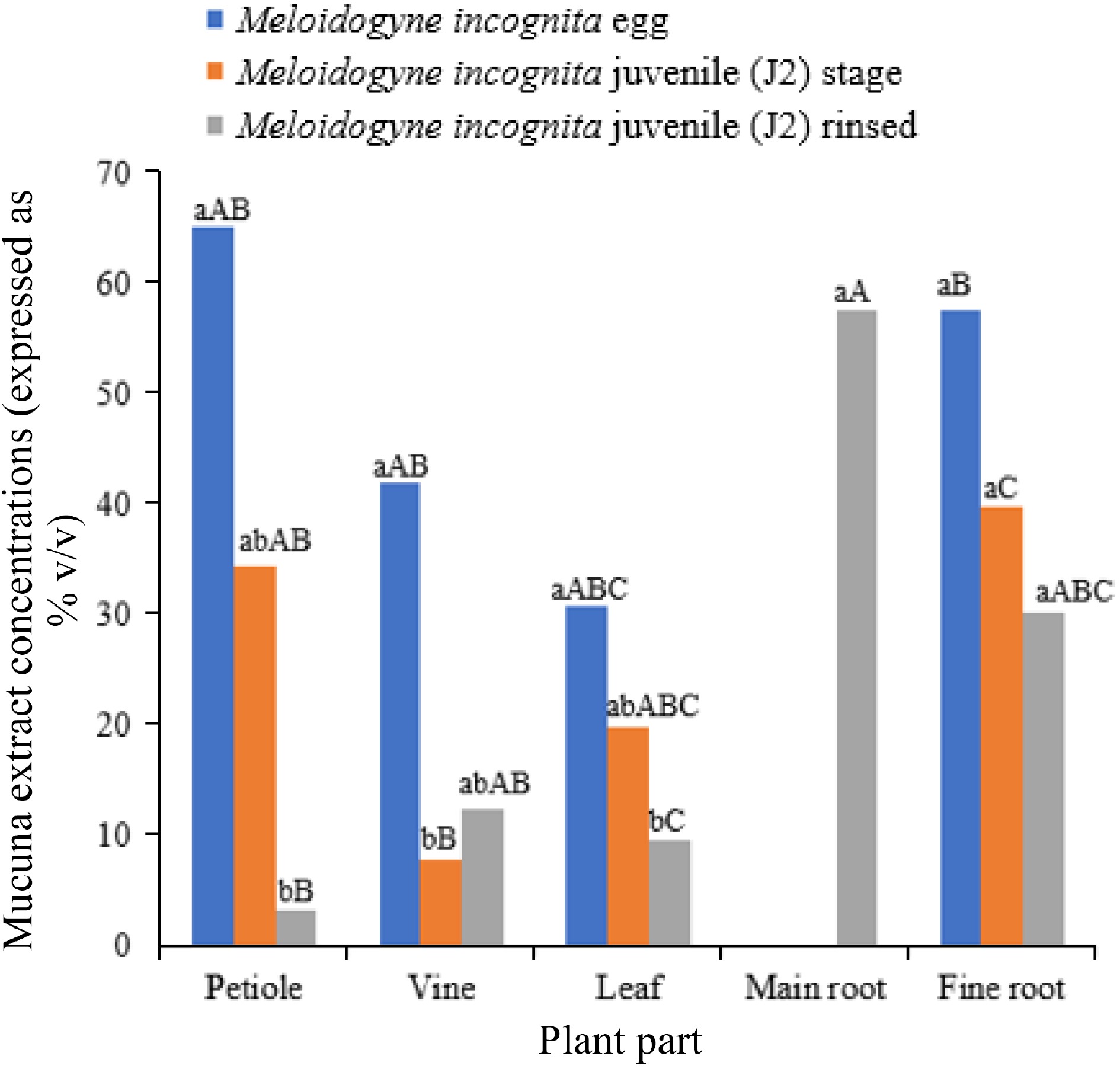
Figure 4.
Impact of Mucuna pruriens extractions for 50% reduction Meloidogyne incognita. Source: Authors' compilation based on information from germination and growth study[42]. Note: Values followed by the same lowercase letters and same uppercase letters are not different (p < 0.05) separately. Values are taken by Bon p-value adjustments.
-
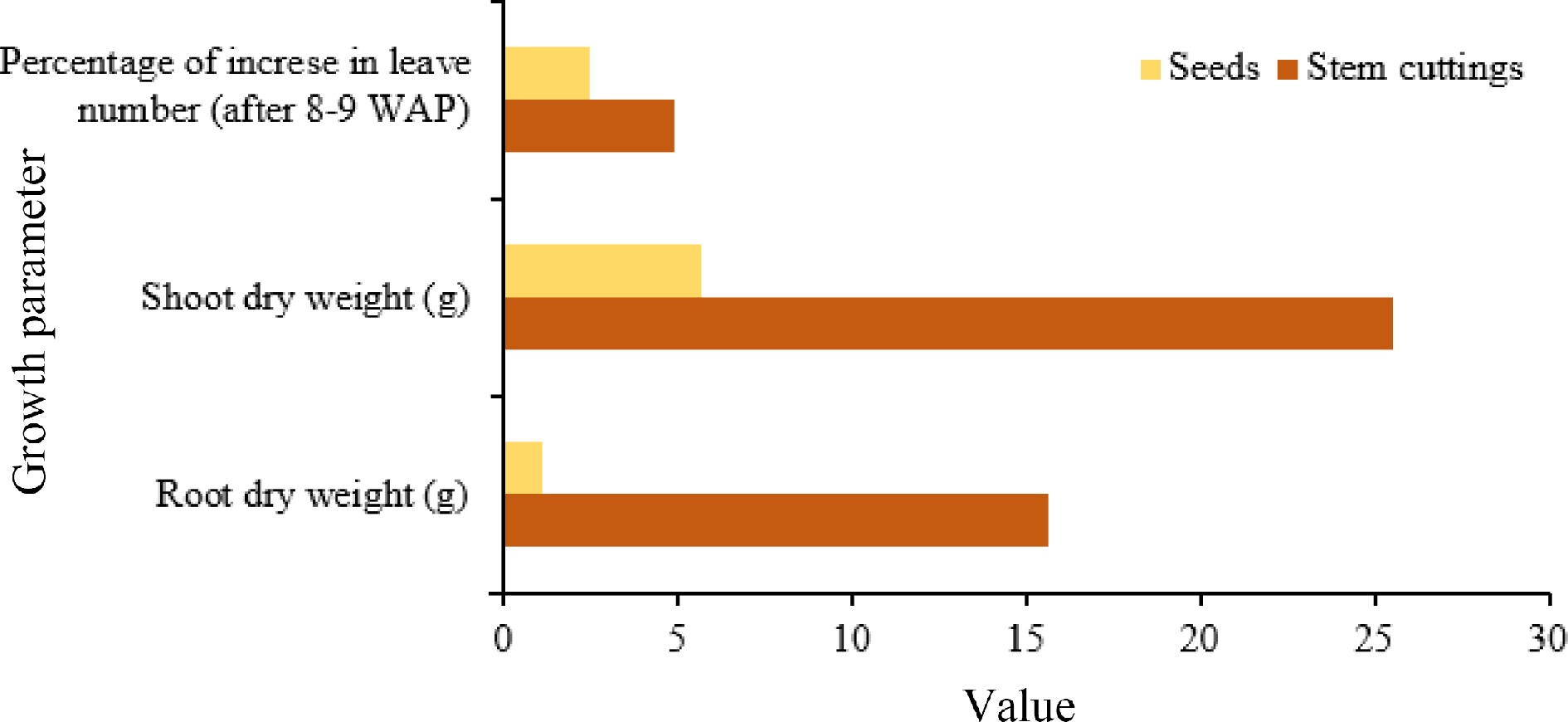
Figure 5.
Comparison of growth of Mucuna from seeds and cuttings. Source: Authors‘ compilation based on information from growth pattern study[66].
-
Cassava/cover
cropping systemsWeed density (No. of weeds/m2) 2011 2012 2013 Cassava/Mucuna 71f 139d 129f Cassava/Cowpea 102.5e 171c 156e Cassava/Soybean 123.3d 188c 169cd Cassava/Lablab 137.4c 200b 178c Cassava mono-cropping 165b 224b 218b Natural fallow 199.8a 325a 377a Means followed by the same letter(s) within the same column are not significantly different at a 5% significance level. Source: Authors' compilation based on information from intercrops and weed management practices[21]. Table 1.
Comparison of weed density in different pre-rice cassava/legume cover cropping practices in rice at 9 weeks after transplanting.
-
Treatments Germination (%) Control (no seed treatment was practised) 53 Cold water soaking for 24 h 58 Hot water soaking at 80 °C for 5 min 79 Acid treatment (commercial H2SO4) for 3 min 83 Scarification (seeds were rubbed against the hard surface for 5 min) 93 Cow-dung pelleting 63 Panchakavya soaking (3% concentration for 6 h)
(a mixture of 2.5 kg of cow dung, 1.5 L of cow urine,
1 L of cow milk, 1 L of cow curd, 500 g of cow
ghee and 1.5 L of sugar cane juice)67 Table 2.
The impact of various seed treatments on Mucuna pruriens seed germination. Source: Authors' compilation based on information from study on seed treatment effects[67].
Figures
(5)
Tables
(2)